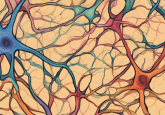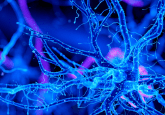New study reveals potential early warning biomarkers for dementia

Recent research published in BMC Medicine has identified two brain proteins, peripheral glial fibrillary acidic protein (GFAP) and neurofilament light chain (NfL), as potential biomarkers for early dementia diagnosis.
The study was conducted by measuring plasma levels of GFAP and NfL in 48,542 participants from the UK Biobank, a large biomedical database. While none of the participants had dementia at the beginning of the study, over the average follow-up period of approximately 13 years, 1312 participants were diagnosed with dementia.
The investigators discovered that elevated levels of GFAP and NfL in the participants preceded dementia diagnoses by up to 15 years. Additionally, these proteins correlated with accelerated cognitive impairment, highlighting their potential as predictive indicators. While NfL was associated with reduced numeric memory and longer reaction time, a greater annualized rate of change in GFAP significantly correlated with increased cognitive decline in the participants. Interestingly, the genetic risk score for Alzheimer’s disease and number of APOE*E4 alleles greatly correlated with GFAP and NfL levels.
You may also be interested in:
- Biomarker context-of-use: how organizational design can impact the implementation of the appropriate biomarker assay strategy
- In the Zone: smart biomarker assays
- Panel discussion: evolving best practices in high-complexity flow cytometry
Current diagnosis of dementia, such as Alzheimer’s disease, relies on late-stage symptoms and protein changes like amyloid and tau, but these findings suggest a new avenue for early intervention. Researchers speculate that detecting dementia decades before symptoms emerge could lead to more effective treatments, potentially halting its progression and enabling clinicians to act before significant neuronal damage has manifested.
GFAP and NfL levels are also influenced by other factors and are present in various conditions, including traumatic brain disorders and Parkinson’s disease, further solidifying their role as sensitive markers of neuronal damage and neuroinflammation. Researchers remain optimistic about their potential role in future anti-inflammatory and neuroprotective therapies, offering hope for those affected by dementia.





